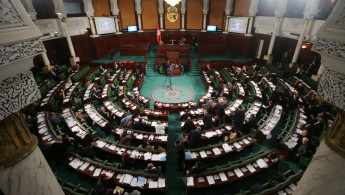Tunisian parliament passes anti-graft law
Tunisia's parliament on Wednesday passed a law to fight widespread corruption that has plagued the country's economy since the 2011 revolution.
One hundred and forty-five lawmakers out of 217 voted to pass the 36-article law, which criminalises any retribution against whistleblowers including any disciplinary measures against civil servants.
"Strong legislation like this helps fight corruption," said Civil Service Minister Abid Briki, who attended the session.
The parliament's deputy speaker Abelfattah Mourouj said the law was "a gain from the revolution".
Experts say petty graft has hampered Tunisia's economy since anti-corruption protests six years ago sparked the fall of longtime president Zine El Abidine Ben Ali.
At least 450 million dinars (200 million euros/$230 million) in bribes were slipped to state employees in 2013 alone, says the Tunisian Association for Public Auditors.
Prime Minister Youssef Chahed's government has made corruption a priority since taking office last year, when the head of the national anti-graft body Chawki Tabib warned graft had reached "epidemic" proportions.
Corruption was widespread under Ben Ali, whose close circle - especially his wife's family - had an iron grip on the economy.
Tunisia was ranked 75th out of more than 170 countries in the 2016 corruption perceptions index published by Transparency International. It had been 59th in 2010.
The anti-graft body honoured 10 whistleblowers in corruption cases last month in a move to encourage more people to come forward.
Agencies contributed to this report.





 Follow the Middle East's top stories in English at The New Arab on Google News
Follow the Middle East's top stories in English at The New Arab on Google News
![Israeli forces ordered bombed Gaza's Jabalia, ordering residents to leave [Getty]](/sites/default/files/styles/image_330x185/public/2176418030.jpeg?h=a5f2f23a&itok=_YGZaP1z)

